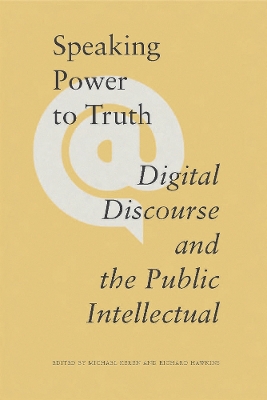Cultural Dialectics
1 total work
Speaking Power to Truth
Online discourse has created a new media environment forcontributions to public life, one that challenges the socialsignificance of the role of public intellectuals-intellectualswho, whether by choice or by circumstance, offer commentary on issuesof the day. The value of such commentary is rooted in the assumptionthat, by virtue of their training and experience, intellectuals possessknowledge-that they understand what constitutes knowledge withrespect to a particular topic, are able to distinguish it from mereopinion, and are in a position to define its relevance in differentcontexts. When intellectuals comment on matters of public concern, theyare accordingly presumed to speak truth, whether they are writing booksor op-ed columns or appearing as guests on radio and television newsprograms. At the same time, with increasing frequency, discourse onpublic life is taking place online-l an environment that ischaracterized by an abundance of speakers, discussion, and access. Buthas this democratization of knowledge, as some describe it brought withit a corresponding increase in truth?
Casting doubt on the assertion that online discourse, with itsproliferation of voices, will somehow yield collective wisdom, SpeakingPower to Truth raises concerns that this wealth of digitally enabledcommentary is, in fact, too often bereft of the hallmarks ofintellectual discourse: an epistemological framework and the provisionof evidence to substantiate claims. Instead, the pursuit of truth findsitself in competition with the quest for public reputation, access toinfluence, and enhanced visibility. In exploring the implications ofthe digital transition, the contributors to Speaking Power to Truthprovide both empirical evidence of, and philosophical reflection on,the current and future role of the public intellectual in atechnologically mediated public sphere.
